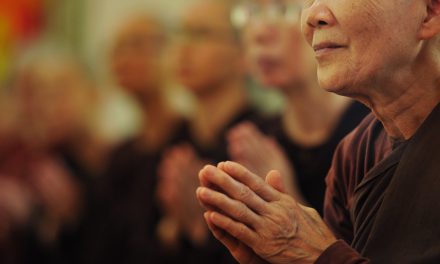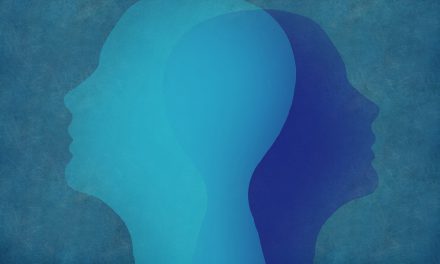Yoga: As Effective as Anti-Depressants?
This post is part of an ongoing public discussion relating to the scientific research of yoga and follows a two-part online webinar, Scientific Research on Depression and Yoga, which can be found on our events archive here. Comments are welcome in the comment field provided below this post. All comments are moderated for content and may or may not be published.
Studies show that yoga helps improve symptoms of depression, especially in long-term practitioners.
April 2020 seems so long ago, when I sat down with Yoga Alliance’s Director of Research and Assistant Professor of Medicine at Harvard Medical School Dr. Sat Bir Singh Khalsa to talk about yoga and depression. He has compiled a selection of peer-reviewed publications of scientific research on the subject, and our conversation was called “The Scientific Research on Yoga and Depression.”
Dr. Khalsa first delineated the difference between “sadness or depressed mood” and the disease called Major Depression Disorder (MDD). Just two weeks before, we had talked about yoga and anxiety, and it probably won’t surprise anyone that the science strikes similar tones in both areas of research: yoga is a palliative and even an intervention for both anxiety and depression, and in long term practitioners it has deeper and lasting effects.
Understanding depression versus MDD
Dr. Khalsa then distinguished between feelings of sadness, which are not the same as having become ensconced in multiple, integrally connected depressive symptoms over a period of time. Five or more symptoms in this list occurring for two weeks, including #1 or #2, and clinically significant distress/impairment overall, constitute MDD:
- Experiencing a depressed mood. I.e, feeling sad, empty, hopeless
- Feeling a loss of interest/pleasure in daily activities
- Having weight or appetite change
- Being unable to sleep well or long enough
- Being agitated or slowed down with regard to how you move and think (“psychomotor agitation or retardation”)
- Feeling fatigue/loss of energy
- Feeling worthless or guilty
- Having difficulty concentrating or making decisions
- Thinking about suicide
As COVID continues to wreak both direct and indirect suffering across all aspects of life as we know it, one thing sticks out. Dr. Khalsa always points out that there is a strong proven association between stress and disease. With regard to depression, Dr. Khalsa said that studies show that stressors are 2.5 times more likely to be present. While acute major life events, such as divorce or the death of a loved one, or even Covid, can be precipitant, chronic stresses are stronger and acute ones as predictors of depression.
The GABA effect: yoga as comparable to medication
As with anxiety, the therapies for depression vary. Interestingly, Dr. Khalsa said that nearly 30% of the population is resistant to depression medication. Like many in mind-body research, he said he worries that antidepressants often don’t address the underlying causes of depression. Fortunately, there is evidence suggesting that “yoga’s efficacy seems to be comparable to that of antidepressant medication.” This is great news because, as Dr. Khalsa also outlines in each talk he gives, yoga not only has immediate positive benefits but long-term benefits as well.
One example of yoga’s immediate-and-potentially-lasting effects turns up in a study on Gamma Aminobutyric Acid, or GABA, which is an inhibitory neurotransmitter with an immediate effect on depression. It is “tightly associated with depression,” Dr. Khalsa said, functioning essentially as an antidepressant. This study showed that within the span of one yoga class, GABA was measured to increase and therefore improve the mood state of the yoga students.
For more information on the relationship between stress and disease, and what yoga can do about both, watch one of most popular conversations on Stress and Yoga.
The inescapable problem with depression and all mental illness, though, is that it’s a very complicated disease. “It involves many neurotransmitters,” Dr. Khalsa reminded us, and it takes a while to develop. It is essential, therefore, to understand that even yoga’s effects will time to settle in. The good news is that yoga can have an immediate effect, and the more you do it, the more effective it is. This is a bit of bright light during unsteady times.
Three citation highlights:
Findings from “Effect of 12 weeks of yoga training on the somatization, psychological symptoms, and stress-related biomarkers of healthy women,” from The Department of Psychosomatic Medicine at Kyushu University in 2014, suggest that “yoga can improve somatization and mental health status and has implications for the prevention of psychosomatic symptoms in healthy women.”
An individual study in The International Journal of Yoga Therapy, “Mood Changes Associated with Iyengar Yoga Practices: A Pilot Study,” showed that backbends were associated with a more positive mood.
Research Citations
Yoga practice in the UK: a cross- sectional survey of motivation, health benefits and behaviours, Tina Cartwright, Heather Mason, Alan Porter, Karen Pilkington, 2020
Effect of 12 weeks of yoga training on the somatization, psychological symptoms, and stress-related biomarkers of healthy women, Kazufumi Yoshihara, Tetsuya Hiramoto, Takakazu Oka, Chiharu Kubo, and Nobuyuki Sudo1, 2014
A Randomized Controlled Trial of Mindfulness Versus Yoga: Effects on Depression and/or Anxiety in College Students, Nasrin Falsafi, 2016
Yoga, Meditation and Mind-Body Health: Increased BDNF, Cortisol Awakening Response, and Altered Inflammatory Marker Expression after a 3-Month Yoga and Meditation Retreat, B. Rael Cahn, Matthew S. Goodman Christine T. Peterson, Raj Maturi, and Paul J. Mills, 2017
Yoga for reducing perceived stress and back pain at work, 2012
A randomized controlled pilot study of the effects of 6-week high intensity hatha yoga protocol on health-related outcomes among students, Marian E. Papp, Malin Nygren-Bonnier, Lennart Gullstrand, Per E. Wändell, Petra Lindfors, 2019
Yoga Reduces Symptoms of Distress in Tsunami Survivors in the Andaman Islands, Shirley Telles, K. V. Naveen, and Manoj Dash, 2007
Yoga on Our Minds: A Systematic Review of Yoga for Neuropsychiatric Disorders, Meera Balasubramaniam, Shirley Telles, and P. Murali Doraiswamy, 2013
The Efficacy of Yoga as a Form of Treatment for Depression, Ledetra Bridges and Manoj Sharma, 2017
A systematic Review of Yoga for major depressive disorder, HolgerCramer, DennisAnheyer, RomyLauche, GustavDobos, 2017
Effects of Meditative Movements on Major Depressive Disorder: A Systematic Review and Meta-Analysis of Randomized Controlled Trials, Liye Zou, Albert Yeung, Chunxiao Li, Gao-Xia Wei, Kevin W. Chen, Patricia Anne Kinser, Jessie S. M. Chan, and Zhanbing Ren, 2018
Hatha yoga for acute, chronic and/or treatment-resistant mood and anxiety disorders: A systematic review and meta-analysis, Nina K. Vollbehr, Agna A. Bartels-Velthuis, Maaike H. Nauta, Stynke Castelein, Laura A. Steenhuis, H. J. Rogier Hoenders, Brian D. Ostafin, 2018
Perceptions of hatha yoga amongst persistently depressed individuals enrolled in a trial of yoga for depression, Lisa A. Uebelacker, Morganne Kraines, Monica K. Broughton, Geoffrey Tremont, L. Tom Gillette, Gary Epstein-Lubow, Ana M. Abrantes, Cynthia Battle, and Ivan W. Miller, 2017
Antidepressant efficacy of Sudarshan Kriya Yoga (SKY) in melancholia: a randomized comparison with electroconvulsive therapy (ECT) and imipramine, N.Janakiramaiah, B.N.Gangadhar, P.J.Naga Venkatesha Murthy, M.G.Harish, D.K.Subbakrishna, A.Vedamurthachar, 2000
Adjunctive yoga v. health education for persistent major depression: a randomized controlled trial, Lisa A. Uebelacker, Geoffrey Tremont, Lee T. Gillette, Gary Epstein-Lubow, David R. Strong, Ana M. Abrantes, Audrey R. Tyrka, Tanya Tran, Brandon A. Gaudiano, and Ivan W. Miller, 2017
5-HTTLPR and MTHFR 677C>T polymorphisms and response to yoga-based lifestyle intervention in major depressive disorder: A randomized active-controlled trial, Madhuri R. Tolahunase, Rajesh Sagar, and Rima Dada, 2018
Psychological Function, Iyengar Yoga, and Coherent Breathing: A Randomized Controlled Dosing Study, SCOTT, TAMMY; GERBARG, PATRICIA L.; SILVERI, MARISA M.; NIELSEN, GREYLIN H.; OWEN, LIZ; NYER, MAREN; BROWN, RICHARD P.; STREETER, CHRIS C., 2019
Effects of yoga versus walking on mood, anxiety, and brain GABA levels: a randomized controlled MRS study, Chris C. Streeter,Theodore H. Whitfield, Liz Owen, Barch, Tasha Rein, Surya K. Karri, Aleksandra Yakhkind, Ruth Perlmutter, Andrew Prescot, Perry F. Renshaw, Domenic A. Ciraulo, and J. Eric Jensen, 2010
Thalamic Gamma Aminobutyric Acid Level Changes in Major Depressive Disorder After a 12-Week Iyengar Yoga and Coherent Breathing Intervention, Chris C. StreeterPatricia L. GerbargRichard P. BrownTammy M. ScottGreylin H. NielsenLiz OwenOsamu SakaiJennifer T. SneiderMaren B. NyerMarisa M. Silveri, 2020
Yoga- and meditation-based lifestyle intervention increases neuroplasticity and reduces severity of major depressive disorder: A randomized controlled trial, Tolahunase, Madhuri R.; Sagar, Rajesh; Faiq, Muneeb; Dada, Rima, 2018
Yoga for the treatment of depression: Five questions to move the evidence-base forward, Maya Nauphal, David Mischoulon, Lisa Uebelacker, Chris Streeter, Maren Nyer, 2019

About the Author
Kim Weeks
Certified Iyengar Yoga Teacher and wellness expert, and founder of a wellness consulting and education company called Weeks Well, whose mission is to foster transformation in work and life.
We welcome your thoughts.
We invite you to share your questions or insights in the comment field below. To ensure quality of conversations on our blog, all submitted comments are held in queue for moderation and review. We’ll do our best to publish your comments as quickly as possible.
Comment Guidelines.
![]() Keep comments concise and on-topic.
Keep comments concise and on-topic.![]() Be courteous.
Be courteous.![]() Review before posting.
Review before posting.![]() Provide references or links to documentation.
Provide references or links to documentation.![]() Avoid serial comments.
Avoid serial comments.







